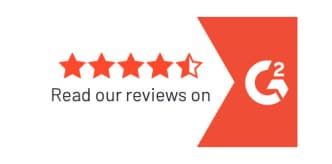Have you ever watched a child try to put a triangle-shaped block into a square-shaped hole? You know, that shape-sorting game in which the right shaped block goes in the right hole of the wooden box. It’s a timeless game that has been used from generation to generation. The child picks up a specific shaped block and feels around to make sure it fits into the correct hole. The block then drops inside the box once the pairing is done correctly. This is similar to how a company fits with a Multiple Employer Plan (MEP) or not.
For those that aren’t aware of an MEP, it is a 401(k) plan that has two or more unrelated employers within it. The largest MEPs are sponsored by Professional Employer Organizations (PEOs), associations, and in some cases chambers of commerce. Regardless of who is sponsoring the MEP, I wanted to take a moment to look over the MEP option for small businesses and examine how it fits in regard to retirement and a 401(k) plan.
It’s important to look at the benefit of an MEP compared to a business directly sponsoring a 401(k) plan on their own. I’ve listed four things that make an MEP something to consider.
Why Employers Choose MEPs
- Group Pricing – The more employers that join and participate in the MEP the more the assets and potential annual contributions will be. This allows for a reduced pricing from most service providers. Reduced pricing can help a small business that normally wouldn’t have the same access or buying power. “Economies of Scale” is the phrase most commonly used.
- Investment Selection – When you have the size you can negotiate and in some cases demand better investment selections. Without going into the details, there are better investment opportunities in reference to the size of the 401(k) plan. An MEP provides such opportunities based on size and growth.
- Provider Services – An MEP typically has three service providers to help navigate the 401(k) plan through the complex waters of ERISA. These include a financial advisor, third-party administrator, and record-keeper. Additionally, there have been an increase in adding another service provider, which is referred to as a 3(16) administrator.
- Fiduciary Relief – There are quite a few things that are involved with a 401(k) plan, and a small business typically would have a difficult time keeping up with them. The organization sponsoring the MEP can elect a trustee or trustees to oversee the MEP, which means that the liability upon the employer is reduced (not removed…reduced).
These four points seem to meet all the criteria for a small business, correct? All the shapes go into the correct hole, and everyone is happy, right? It would seem so, but there is something missing. If this relationship with an MEP was so serendipitous, then why aren’t more small businesses starting up their 401(k) plan with an MEP, and why aren’t MEP sponsoring organizations pursuing them?
According to the DOL, there are 38 million employees of small businesses that do not have access to a 401(k) plan. 85% of those within businesses that have 100 employees or more have access to a retirement plan, while only 53% of those within businesses of less than 100 employees have access to a retirement plan. Many of those businesses reference cost as the primary reason to not start a 401(k) plan.
Group Pricing
If being part of an MEP provides such a luxury as reduced costs for employers, and these type of plans are tailored for the small business, then why aren’t they flocking to them? Sure, you could say that there is outreach to small businesses from the MEP sponsoring organization, but you can bet your bottom dollar that the attention is not on the smaller fish. Why would it be? An MEP full of small businesses would take much longer to be at a size that demands attention.
Bigger businesses bring higher assets and more contributions, and higher assets and more contributions bring more buying power. The small business doesn’t have much to offer in that respect. So, you couldn’t fault the MEP for not pursuing the small business, but it makes the option less available.
In addition to not necessarily being pursued, many small businesses that join an MEP and have under a certain amount of participation or assets are charged a separate annual fee. This is typically a fee to make up for the maintenance and administration costs that the small business has created, but hasn’t been making up for in assets and participation. I know that it sounds unfair, but it’s hard to keep up with the costs of an MEP and when a smaller business with only a handful of employees wants to join it just looks like more overhead expense.
Investment Selection
When comparing the type of investments available to a participating employer in an MEP to what is available on its own, there is a difference, but let’s not completely throw out the opportunity that investments, such as index funds, give to a small business sponsoring a 401(k) plan on its own. However, when the investment selection is considered “better” within an MEP it is just to say that their are more opportunities for the service providers to make more money. Revenue sharing on assets can often be found within these MEPs, and in many cases those aren’t considered appropriately in the overall expense for those participants in the plan (see 408(b)(2) information). It’s important to be aware of that and use that information when determining the total cost benefit to businesses within the MEP.
Keep in mind, I’m not giving any advice on where to put investments nor on how a business should invest. I’m merely saying that there are investment offerings that are low expense and available outside of an MEP. So, the idea that a small business gets the short end of the stick on investments because they aren’t bundled into an MEP solution, simply isn’t true.
Provider Services
An MEP is a complex 401(k) plan. It requires multiple service providers to successfully run it. That complexity comes with a cost. You have sign-up/document fees as well as quarterly and annual costs from the TPA, not to mention potential asset fees. The financial advisor takes his/her cut typically through an asset fee as well, and then the record-keeper has their fee (sometimes built into certain investments). The point is the costs for an MEP are relative to the size and scope of each of these service providers.
That being said, smaller MEPs can find themselves in a place of higher expense but no buying power to reduce those conglomeration of costs. In an effort to remedy those expenses, the MEP seeks out existing larger 401(k) plans to quickly balance the cost to service model. Larger 401(k) plans would, in some cases, have to perform an audit from an outside firm. This comes with a cost as well. So, what is done about it? Well, this is typically sold with the “Hey we can consolidate your audit fees in our MEP, and so the burden is held on many shoulders.”
Where does this leave the small business? With the recent SECURE Act the audit expense can no longer be spread out over assets of participating employers that wouldn’t, on their own, have to do an audit. In other words, the MEP has less need of a small business in their 401(k) plan because it lends no assistance on the audit costs. These MEPs are gold mines for auditors as well, as the complexity of the plan increases the costs for the audit.
You see where I’m going with this? Grouping together businesses into an MEP is a great idea, but when the overall focus is less on providing the 401(k) benefit to small businesses that wouldn’t normally offer it on their own, and more on existing large 401(k) plans, then opportunity and access to retirement is diminished, and the small business is again relegated to the corner. And “nobody puts baby in the corner.” (Sorry, I couldn’t help myself.)
Fiduciary Relief
This is a big one when you think about the complexities surrounding a 401(k) plan and the requirements quarterly, semi-annually, or annually are a burden or even a nuisance for a small business that is primarily focused on their bottom-line and staying afloat. That is a big selling point for a small business. Join an MEP and you will find the help with the fiduciary responsibilities that you don’t have time to do. This is a huge help for any business, and that is something that can’t be said enough. Whatever help you can provide and expertise to the small business in the same way with large businesses, then you are a-okay in my book.
I do want to mention, however, that even this point to an MEP isn’t exactly straightforward. A company owner always has fiduciary responsibilities. The MEP may handle the lion’s share, and the look and feel may be that the business is free from that liability, but for the sake of transparency you must know that that is not 100% the case. The business has selected the MEP, and has the responsibility to monitor them as a service provider. Additionally, if data that is provided to the MEP is flawed, the business would then have to correct it.
One way to see this more clearly is when a participating employer (business) does something that is “out of compliance” or requires a correction. The MEP’s sponsoring organization will (predictably) make efforts and take steps to show how they had upheld compliance for that particular employer and it was the employer who was at fault. Furthermore, the “bad apple” rule no longer applies to the overall MEP. What that means is that if one participating employer is out of compliance, the whole 401(k) plan is not out of compliance.
Keep in mind, the majority of the MEPs that I know out there do the right thing. If they are at fault, they correct it. If the employer is at fault, they work with them to correct it. What I’m trying to get at here is that the employer has liability, and is still a fiduciary. Joining an MEP does not remove that responsibility or liability from them. That message should be clear.
So, what does this all mean? Is a small business the right shaped block for the MEP box? It could be, but due to costs and the complexity of an MEP, it may be better for the small business to look at what technology can provide.
The Alternative to an MEP
There are other options out there for a 401(k) group. At 401GO we refer to them as a 401(k) Syndicate. Each company is aggregated under one co-branded 401(k) benefit group. This is an affordable option for all those involved, from a PEO to an association. Even a CPA could offer their own 401(k) Syndicate for their clients. It is imperative to us that a small business is given the same features and benefits of a retirement plan with a low-cost, high-quality 401(k) plan.
Ultimately, an MEP in my opinion gets a B grade. Why? Because they are providing a wonderful benefit to many businesses out there, and creating an awareness and need to save for retirement. The reason for a B grade is also because of the affordability and perceived access for a small business. The reason we don’t see a lot of small businesses flocking to an MEP is probably because the door hasn’t been opened to them.



